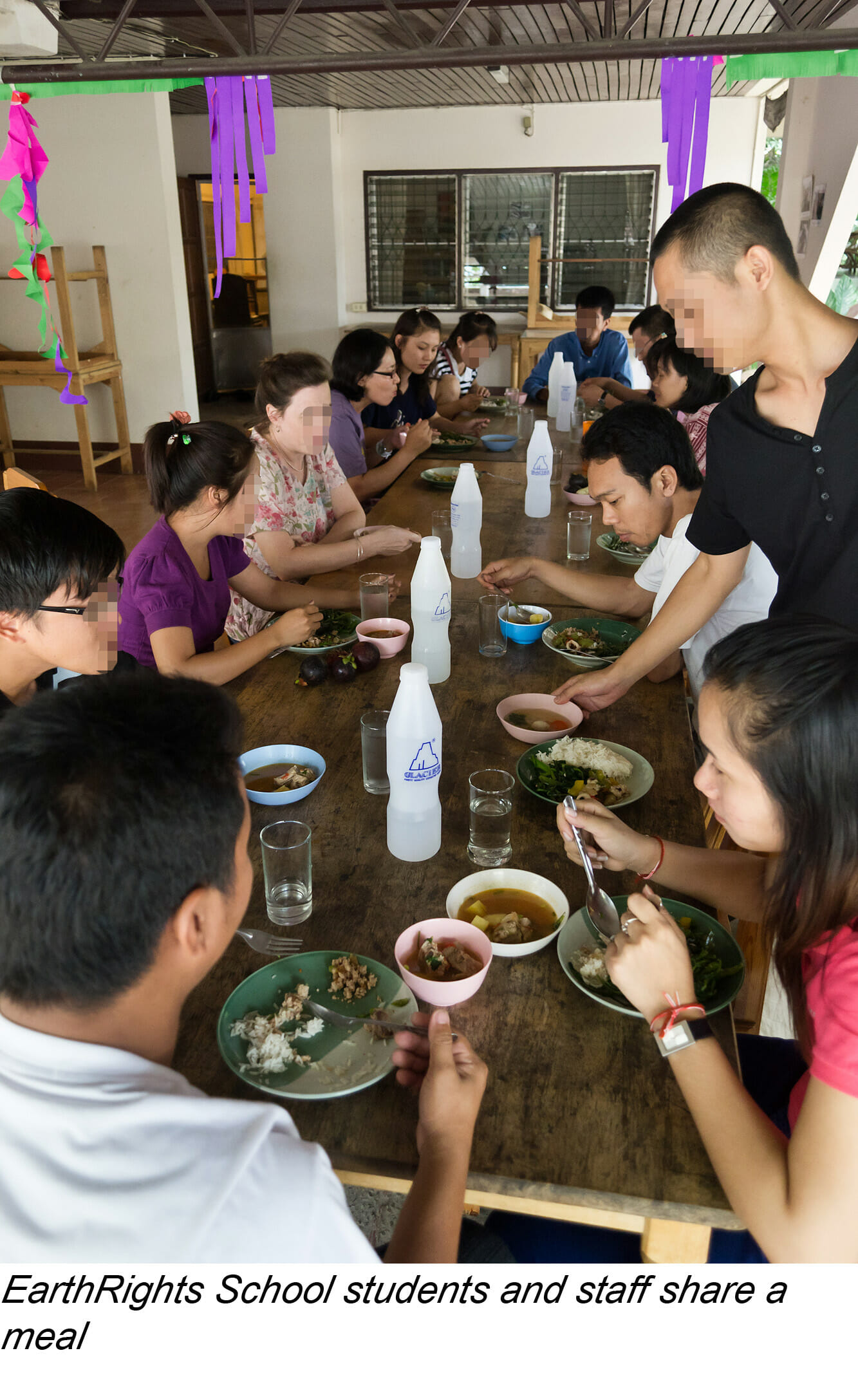“I think what I have gained and learned from the program has really exceeded my expectations…It was the first time for me to be in this family style of school. In my previous schools I have not had this kind of exposure… that can really help us build relationships with and understand people from many different backgrounds.”
These were the words of Mu San Mon*, a young woman from Burma’s Mon ethnic minority, speaking about her own classmates at the EarthRights School Burma– Burma’s next generation of leaders who come from all over the country and its multitude of ethnic groups. During her time in our leadership training institute, while learning the skills she needs to become one of Burma’s frontline defenders of human and environmental rights, she develops friendships and understanding about the homes, cultures and values of the wide-range of Burma’s peoples. And when she graduates she joins the network of hundreds of EarthRights School alumni – not only from Burma, but also from Thailand, Cambodia, Vietnam, Laos and China – who share her vision of justice and sustainable and equitable development.
Two weeks ago, President Obama made a historic visit to Burma – the first serving U.S. president to ever do so – praising the country’s “remarkable journey” to democracy. Yet deep divisions remain as the communal violence in Burma’s southwestern Rakhine State escalates, causing thousands of refugees to flee their homes. Meanwhile, in the North the government’s brutal civil war with the Kachin people grinds on.
These contradictory narratives – the seemingly rapid march towards a new free and open society even while violent conflict ensues fueled by entrenched distrust and antagonism between Burma’s peoples – underscore how important a place like the EarthRights School and its graduates are if true, sustainable and inclusive change in Burma is going to be achieved. As necessary as support and pressure for change from without is, it is the leaders on the ground who are able to reach across ethic, religious and national divides to mobilize communities, push for reform and give a voice to those who have been silenced who will truly matter for Burma’s future.

ERI has been working towards this goal in Burma since our founding over 17 years ago, advocating for global laws and policies to protect human rights and the environment, and training activists to demand and implement such laws from within. Today, the model we developed in Burma is one we use across the globe – from the Mekong river basin to the Amazon – partnering with activists and lawyers from throughout these regions to help them work together to ensure that the development activities of multinational corporations and governments do not destroy their environment or threaten the most vulnerable communities.
As Aung San Suu Kyi, Burma’s opposition leader and democracy icon said earlier this year at her alma matter, Oxford University:
“Our road is one which … we have to build for ourselves, inch by difficult inch. And I hope that you will all be with us while we are doing this. I hope that you will understand that this road is there in our hearts and minds, but not actually there yet in real fact. And that we will need your help and the help of others all around the world to make sure that it leads to where we want our country to go.”
– Aung San Suu Kyi, Oxford University, 20 June 2012
*Names and faces have been concealed to protect students’ identity


-160x90.jpg)



